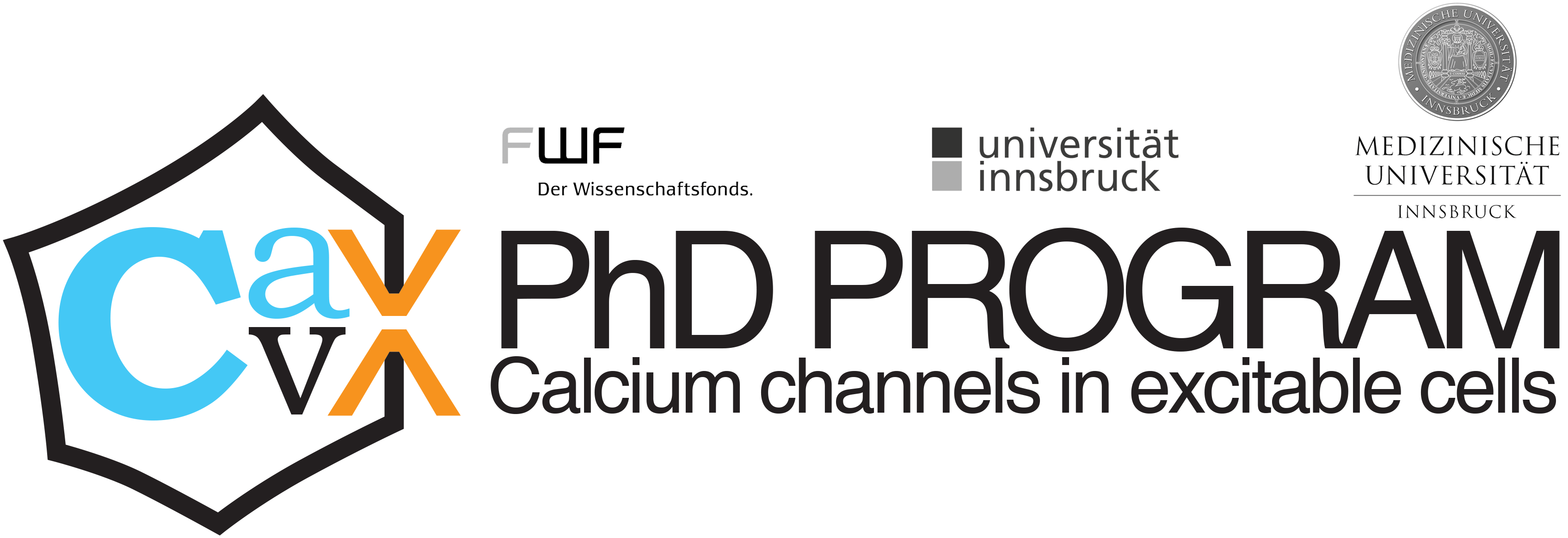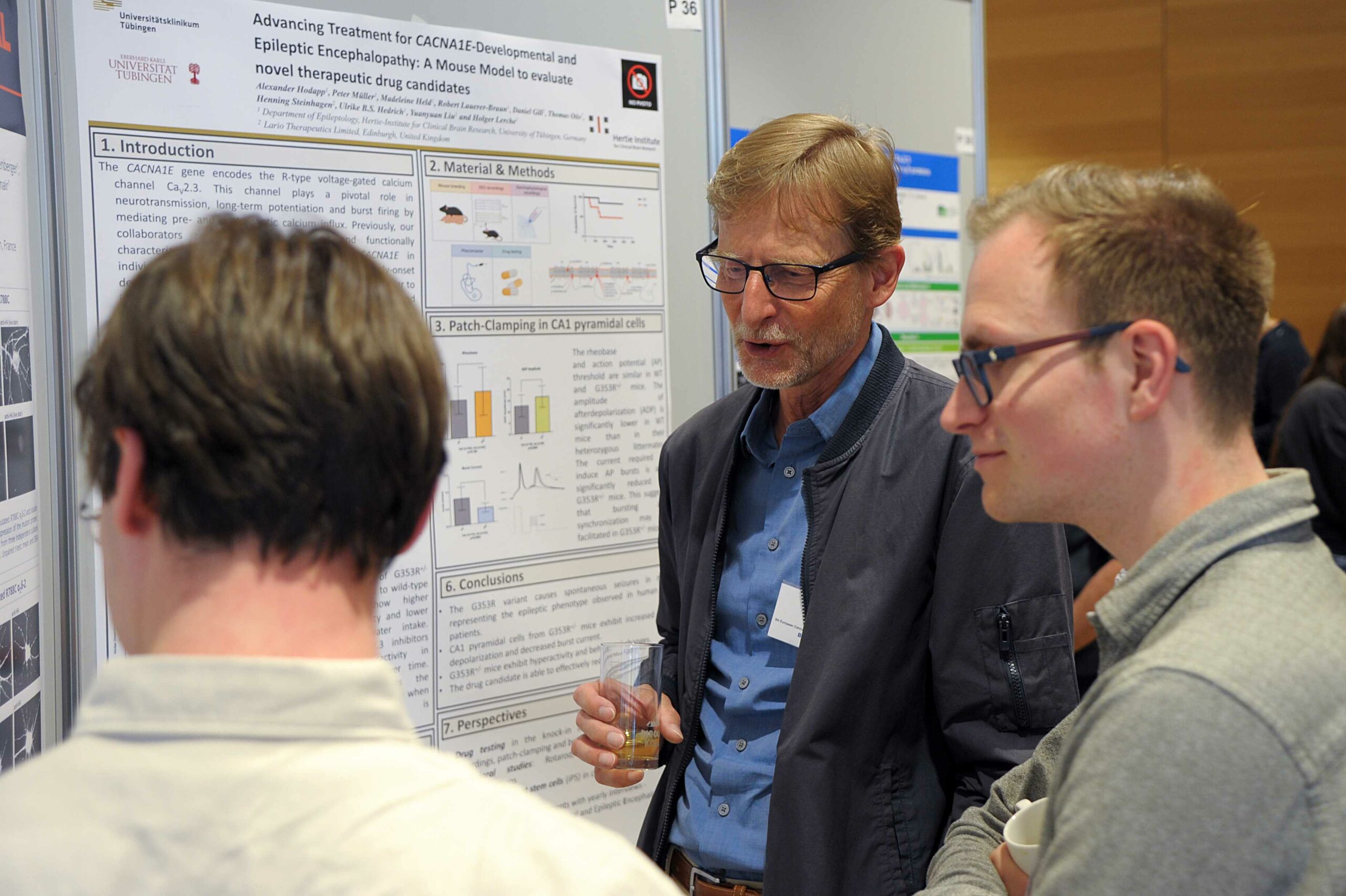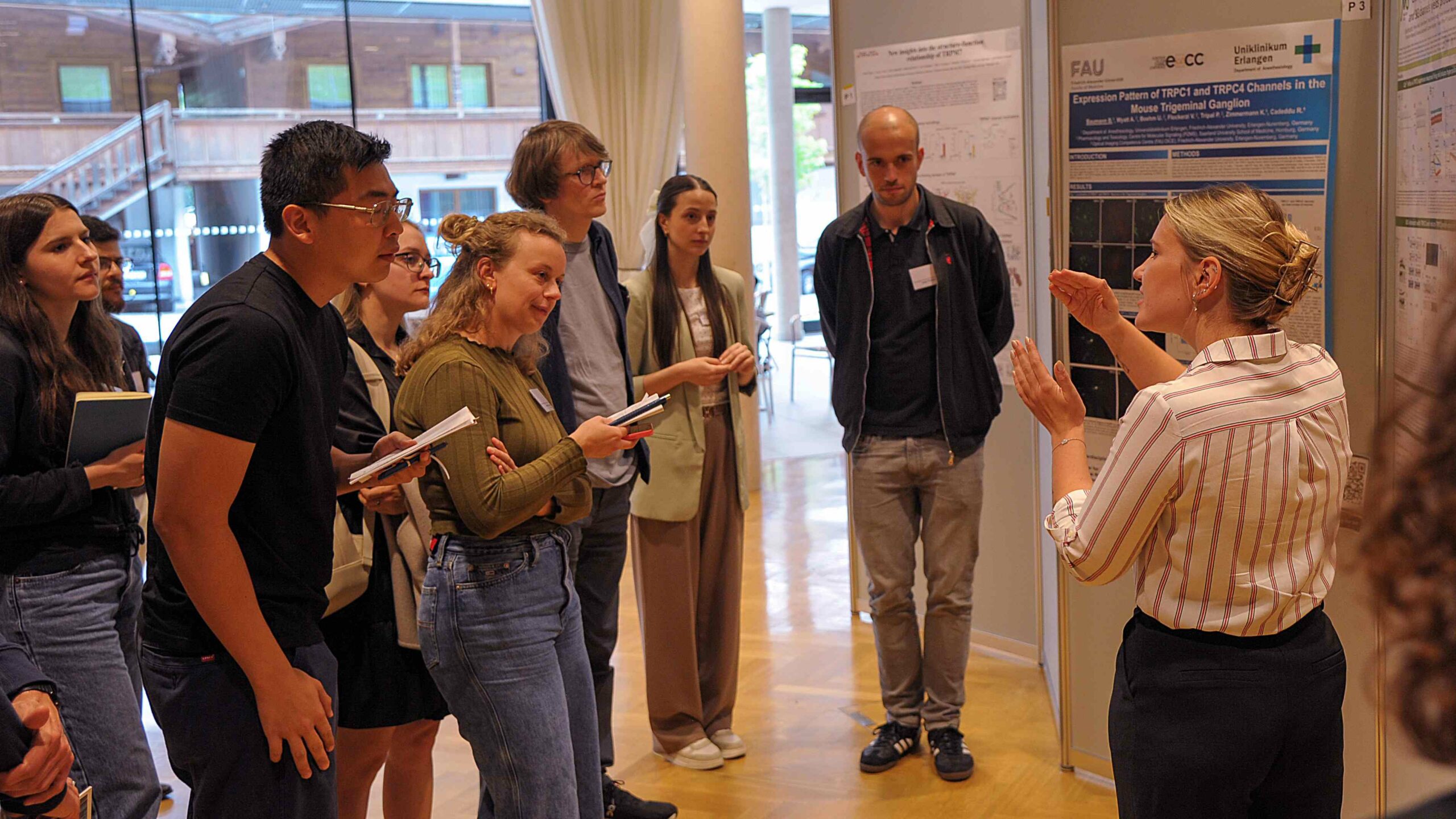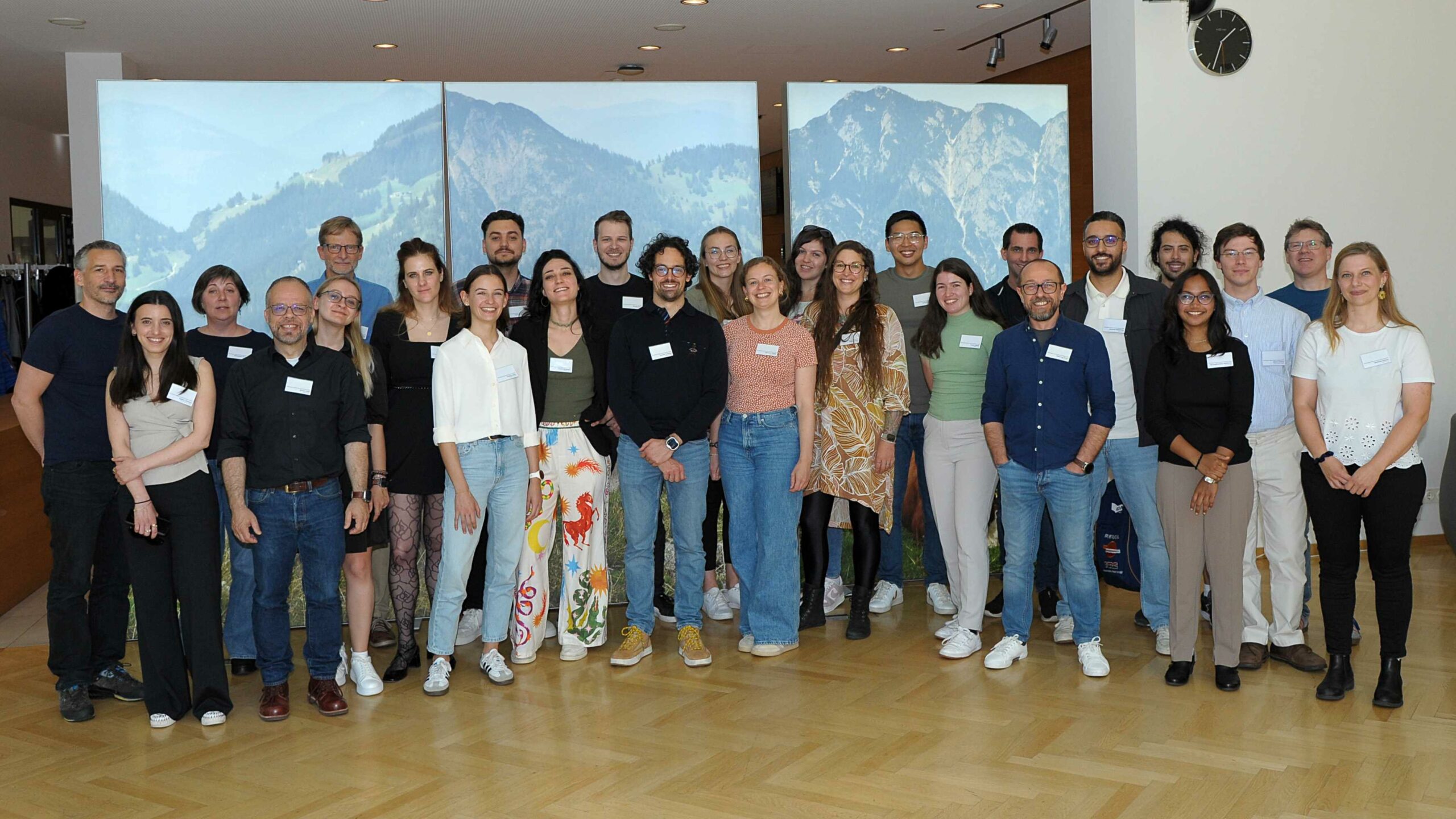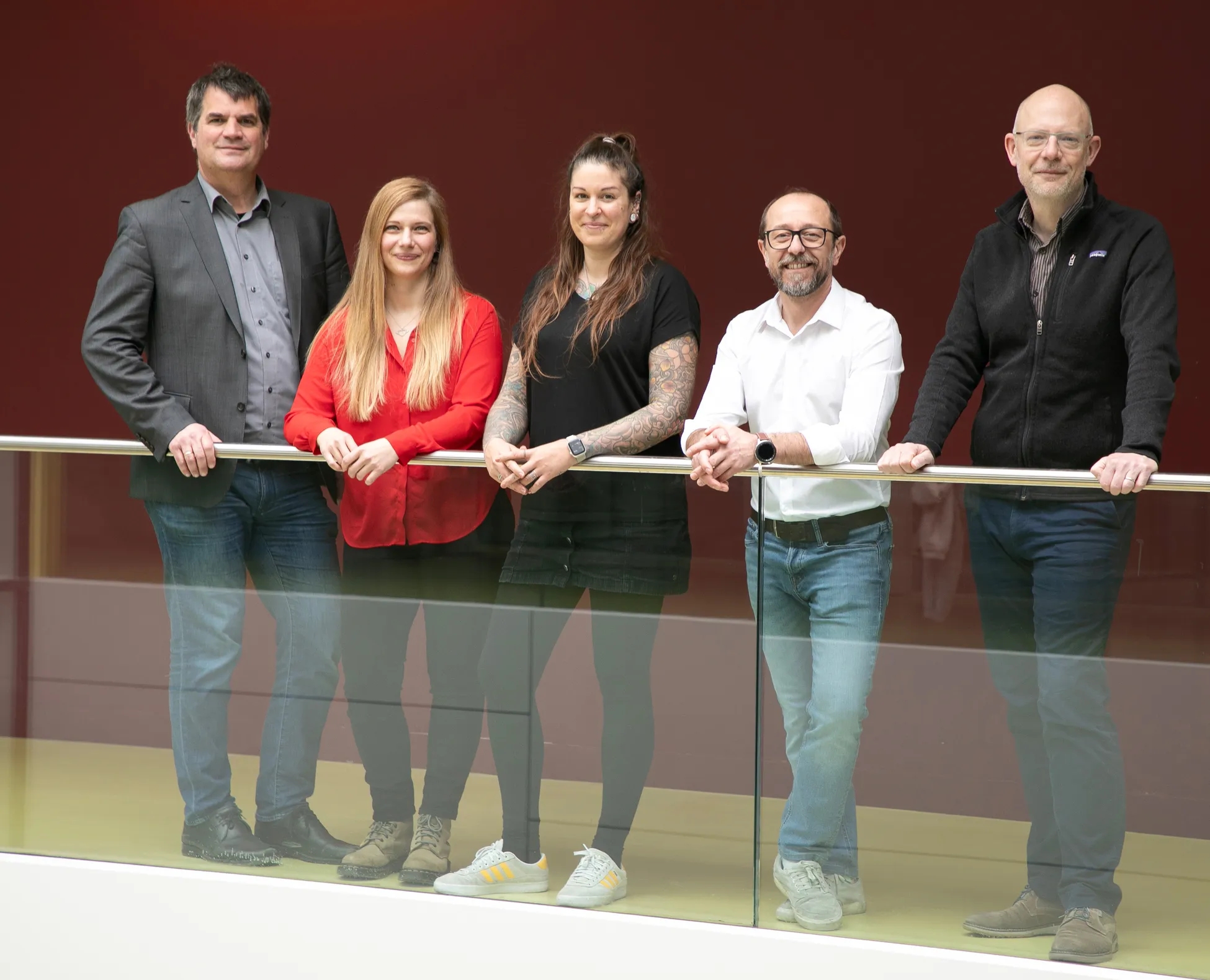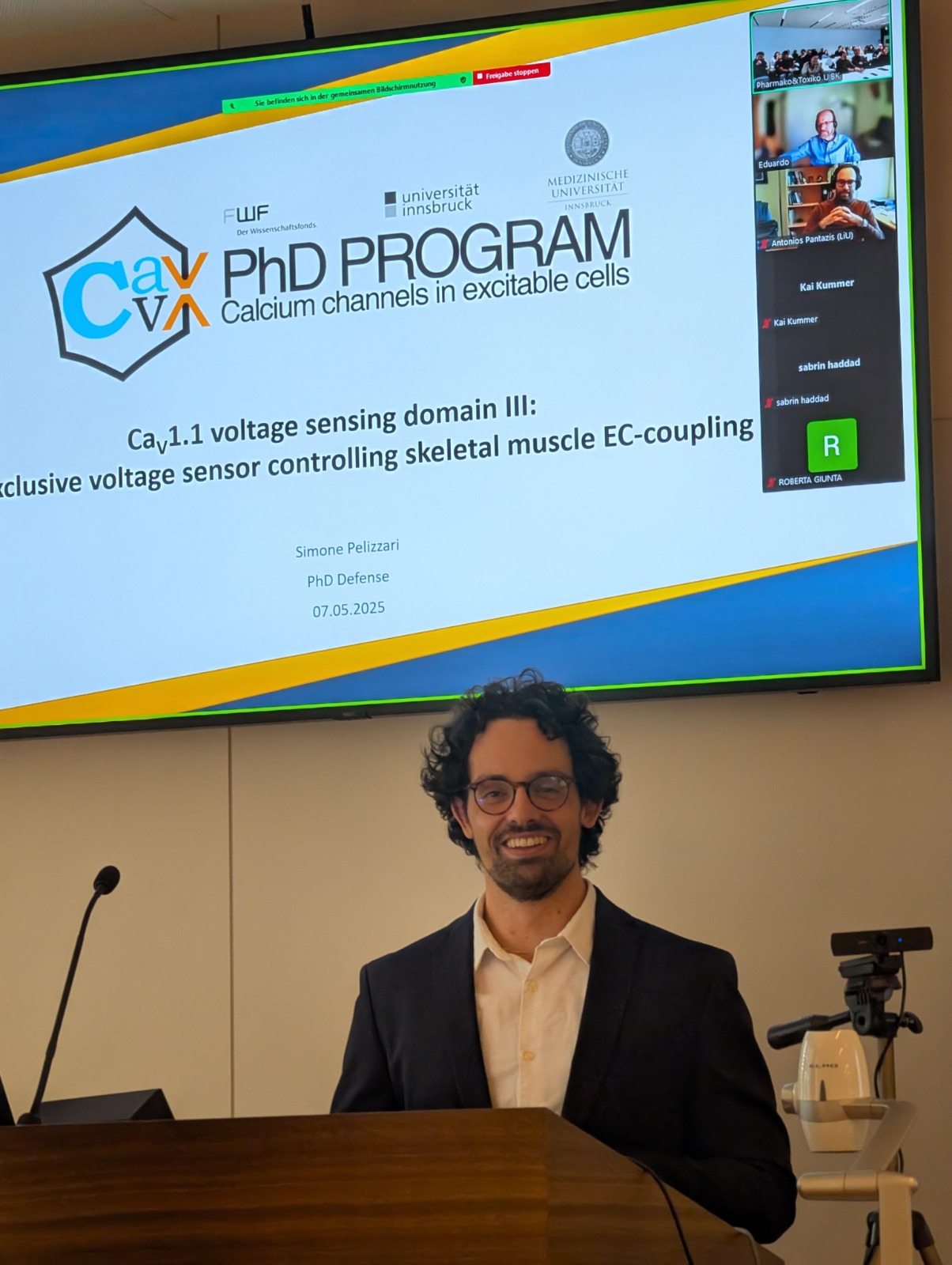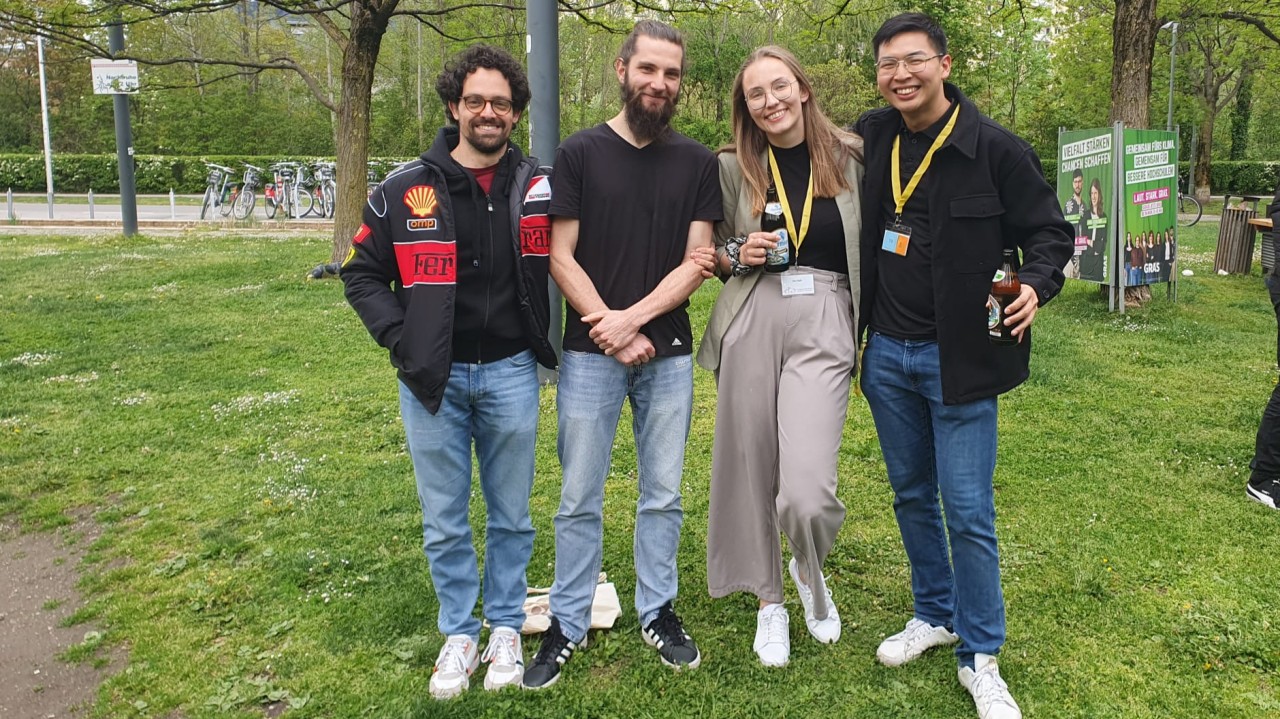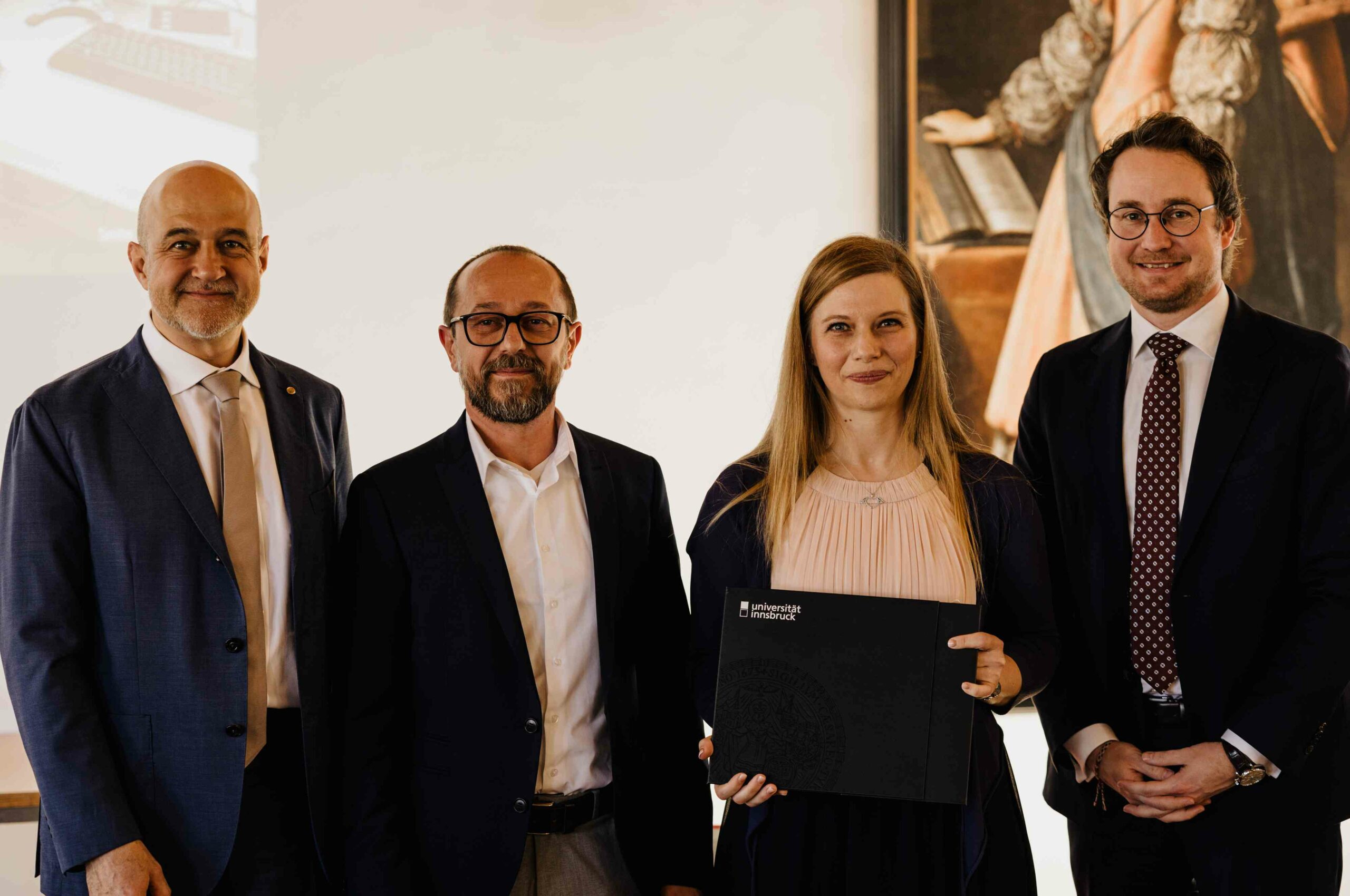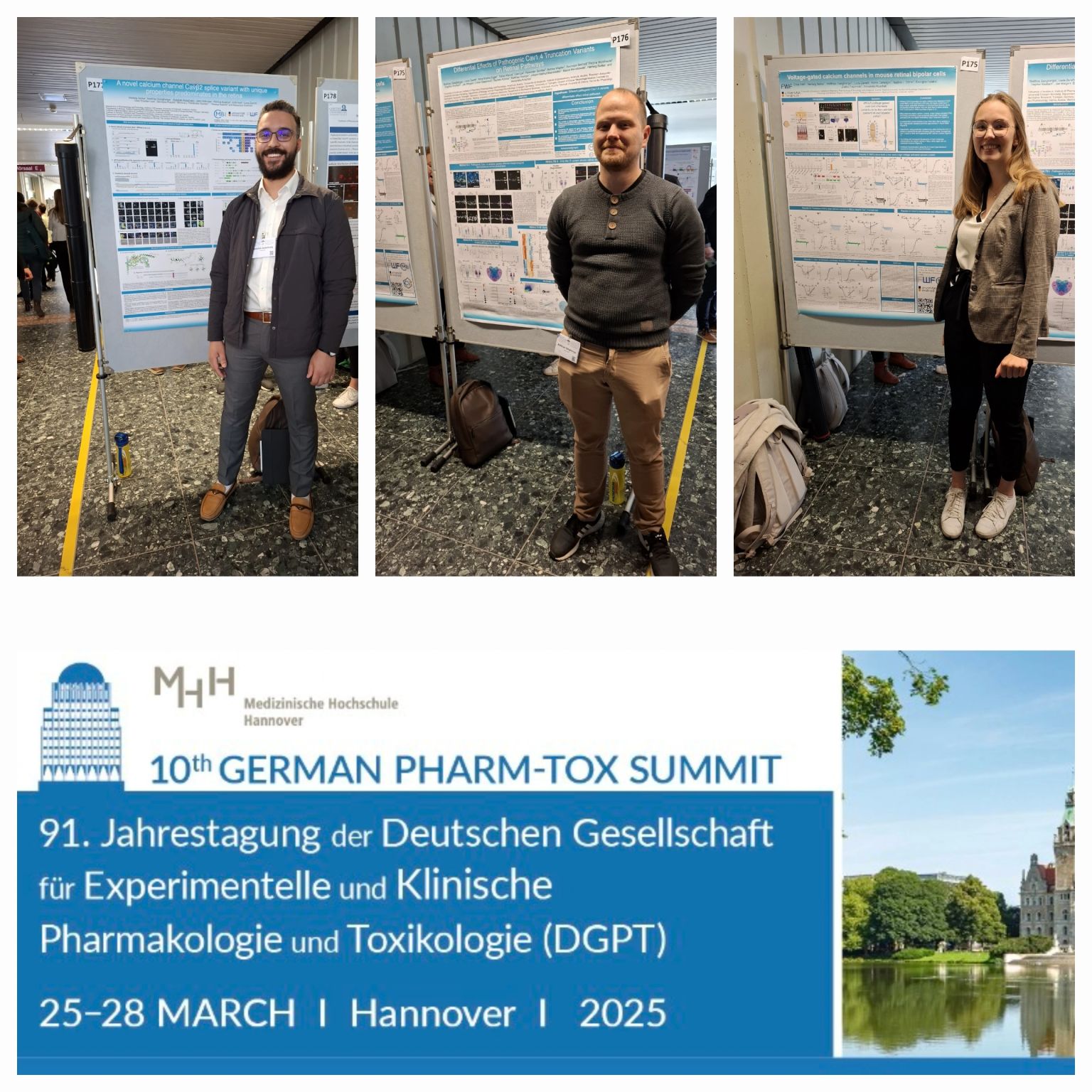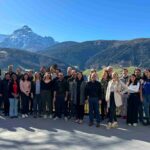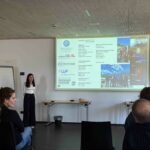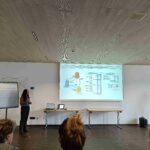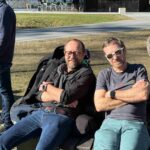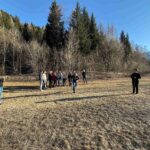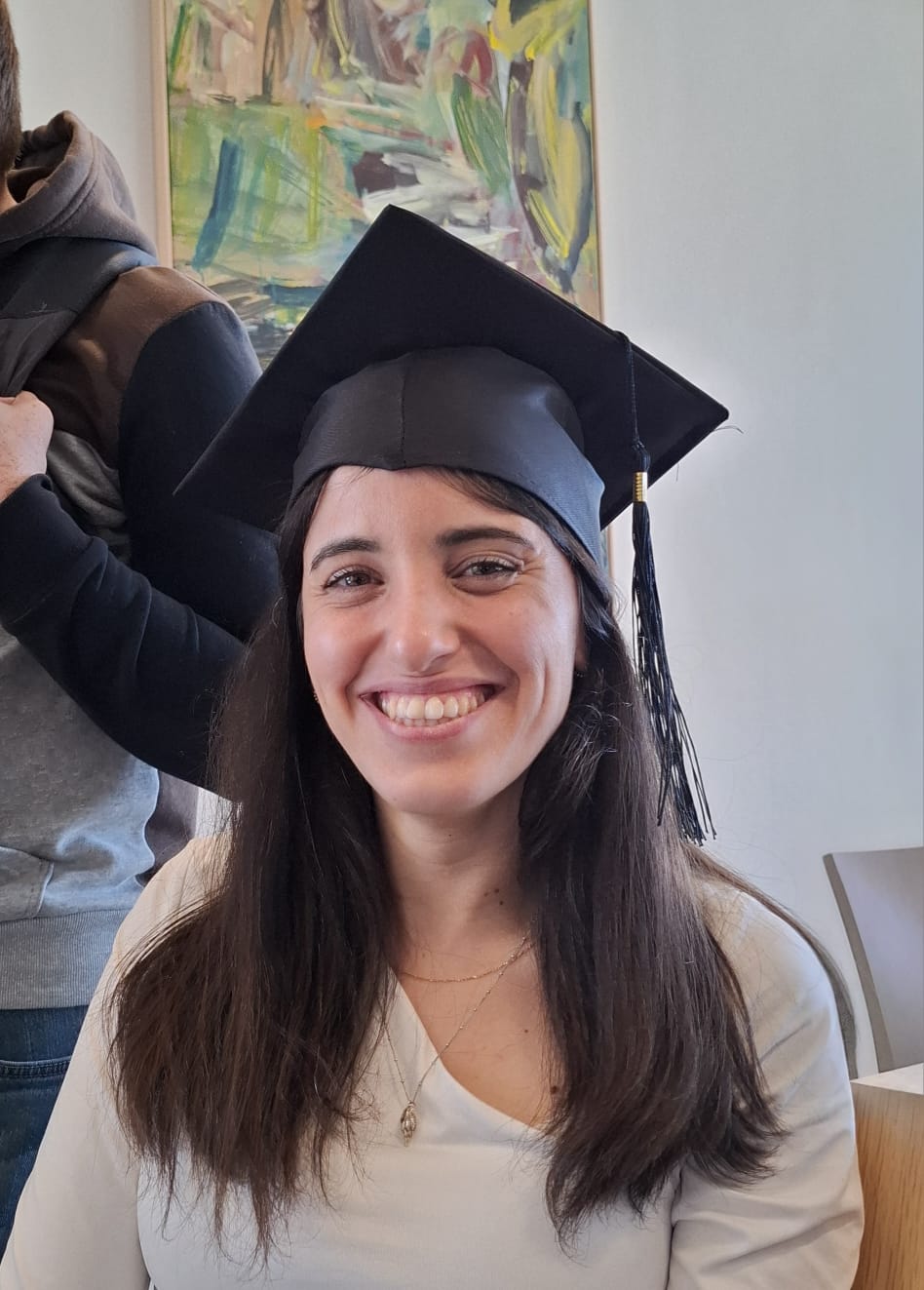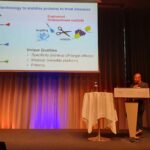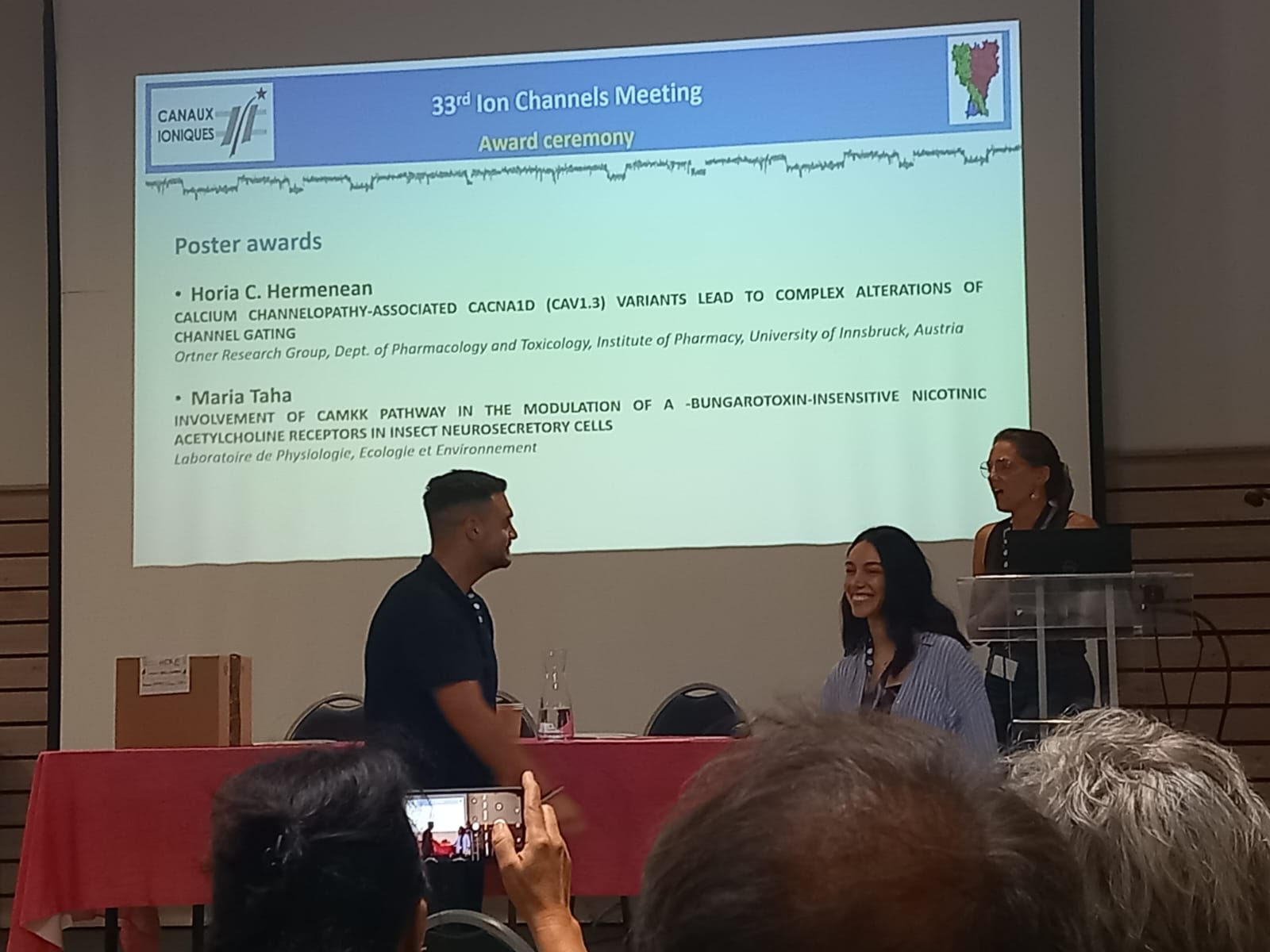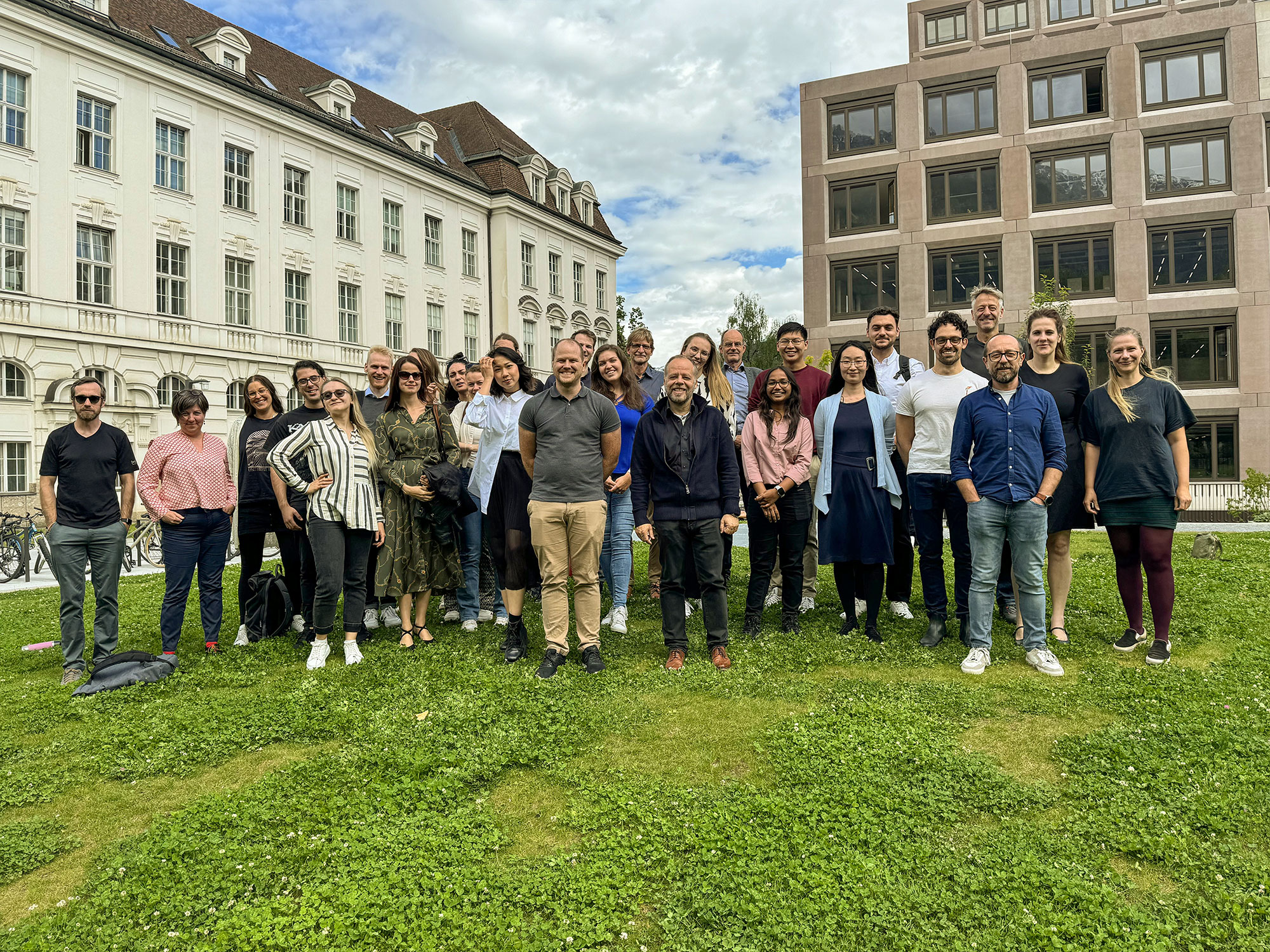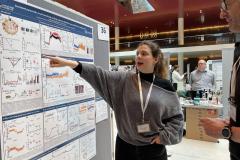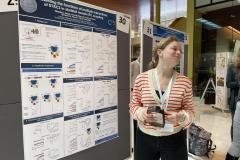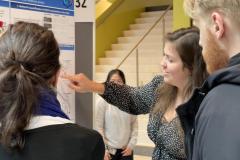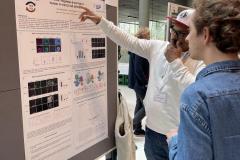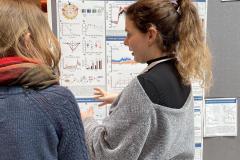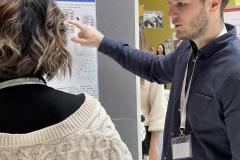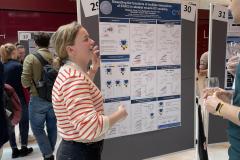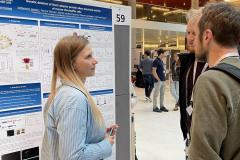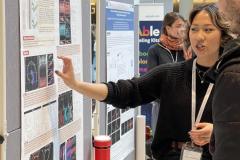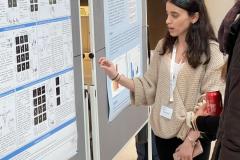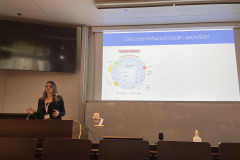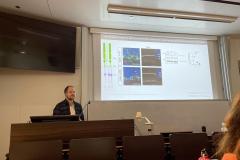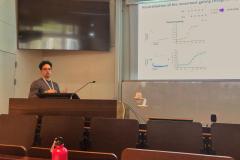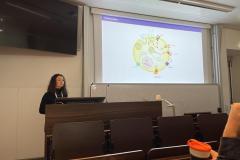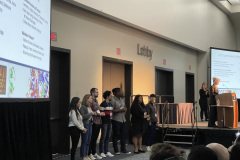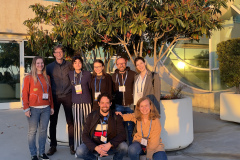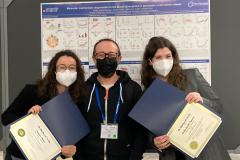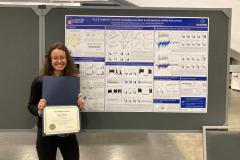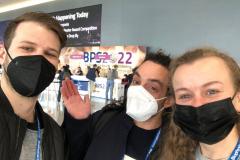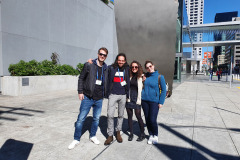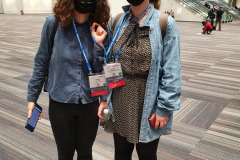// NEWS
Voltage, Views, and Very Good Science: Highlights from ECCC 2025
25-30.05.2025
This year the European Calcium Channel Conference (ECCC) brought together > 150 researchers from around the world to Alpbach, Austria.
The meeting lasted 5 days (25-30 May) and incorporated:
- 3 plenary lectures,
- 56 symposium talks,
- 55 posters,
- 17 research flash presentation selected from the poster abstract.
CaVX organized 2 workshops, the faculty members chaired 7 sessions and gave 3 symposium talks. The CaVX students presented 14 posters from which 6 have been selected for research flash presentation.
Thank you everyone for an excellent participation! 👏🎯
#ECCC #ECCC2025
Research group investigates gene mutations responsible for rare diseases 🧬
12.05.2025
A new research group led by Nadine Ortner from the Institute of Pharmacy at the University of Innsbruck is now focusing on gene mutations that impair the function of a specific channel subtype known as CaV1.3. The five-person interdisciplinary team is funded by the Austrian Science Fund (FWF) with 1.64 million euros.
Link to the resource: https://www.uibk.ac.at/en/newsroom/2025/research-group-investigates-gene-mutations-responsible-for-rare/
Mission Accomplished! 🎯🎓
07.05.2025
Warmest congratulations to Simone PELIZZARI (Flucher Research Group) for successfully defending his PhD! 🥳👏
His presentation, “Cav1.1 voltage sensing domain III: the exclusive voltage sensor controlling skeletal muscle EC-coupling”, showcased his outstanding research and deep commitment to science.
Looking forward to the next exciting chapter in your research career! 🔬🌟
#PhDDefense #ExcitationContractionCoupling #Cav1_1 #SkeletalMuscle #CavX
Best Paper, Poster & Presentation? CavX Says ‘We Got This!’ 💪🎓
23-25.04.2025
This year, at the Innsbruck Life Science PhD Meeting, our CavX students made us proud again winning prices in each category.
From left to right:
- Simone Pelizzari (Flucher group, Med.Uni. Innsbruck) received a Best Paper Award;
- Lukas Hallbrucker (Vogl group, Med.Uni. Innsbruck) received the Best Poster Award;
- Ryoichi Taguchi (Tuluc group, Univ. Innsbruck) received the Best Poster Award;
- Elisa Roth (Koschak group, Univ. Innsbruck) received the Best Oral Presentation Award.
Congratulations to all CaVX students for an excellent participation!
Liechtenstein Prize honors Stefanie Geisler’s excellent work on CaV α2δ subunits. We are proud of our colleague 💪🧬🎓
04.2025
We are proud to share that associated CavX member Stefanie Geisler has been awarded the Prize of the Principality of Liechtenstein for her outstanding research on the role of CaV α2δ subunits in neuroendocrine and neuronal tissue. The awarded research includes findings published in the Journal of Physiology and Frontiers in Synaptic Neuroscience. Congratulations to Stefanie for this well-deserved recognition!
Our collegues shines at Pharm-Tox Summit in Hannover. Spoiler: two nominations for a poster prize 👏🏼🤩🎓
25-28.03.2025
Proud! Two nominations for a poster prize at the 91st DGPT Annual Pharm-Tox Summit in Hannover. Our talented researchers continue to demonstrate excellence in lifting the veil of mystery surrounding calcium channels through their innovative work.
On the 20 and 21st of March 2025 we had our annual CavX PhD Program Retreat, and what an incredible experience it was! A huge thank you to our highly motivated and well-prepared students for delivering two fantastic days of science.
With 16 presentations, a PhD thesis defense, a plenary lecture, and… A LOT OF FUN, it was the perfect opportunity to celebrate our progress while strengthening our community. You can check our pictures here.
Looking forward to next year already! See you in 2026.
“Defense Marathon Continues—Who’s Next?” 🏁💪
21.03.2025
🎉 Congratulations to our colleague Sabrin HADDAD (OBERMAIR Research Group) on successfully defending her PhD! 🎓👏
Her presentation, “Pathophysiological mechanisms of α2δ protein mutations associated with neurodevelopmental disorders,” showcased her outstanding research and dedication.
We are incredibly proud of her achievement and excited for what’s next! 🚀🔬
#PhDDefense #Neuroscience #CavX
27-28.02.2025
A huge congratulations to our colleagues Rosalie Dittrich (Meyer Research Group) and Xuechen Tang (Liedl Research Group) on successfully defending their PhDs! 🎉
🔬 Rosalie Dittrich presented “Voltage-Gated Calcium Channel Cav1.2 as a Key Player in Delta-Cell Mediated Beta-Cell Regulation.” (Feb 27)
🧬 Xuechen Tang defended “Phenotype Prediction of Voltage-Gated Calcium Channels with Evolutionary Methods and Structural Analyses.” (Feb 28)
We are incredibly proud of their achievements — what an exciting week for our lab! 🚀👏
#PhDDefense #CavX

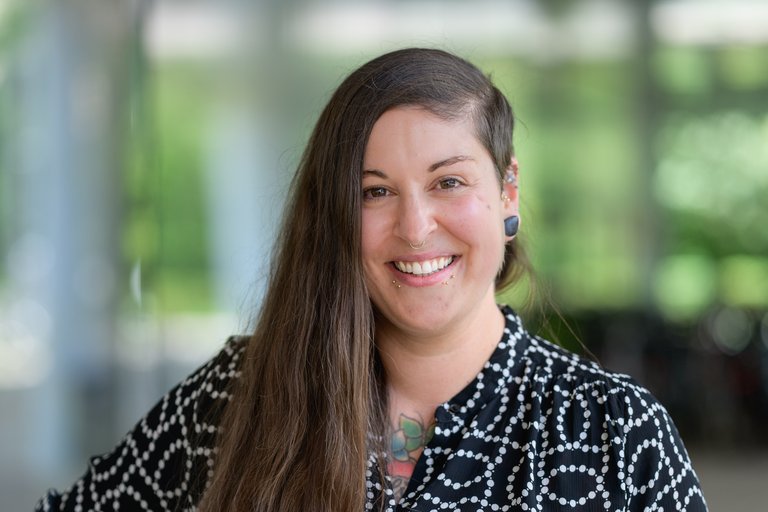
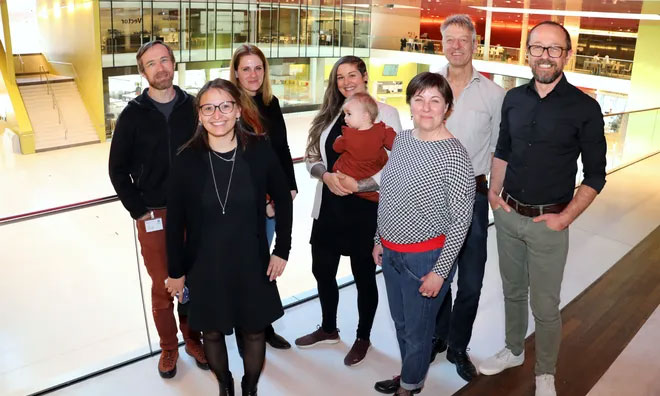
Awards 2022
01.2023
We want to congratulate CaVX alumni Yousra El Ghaleb for the two awards she won in the last months! First, she received the “Dr. Otto Seibert best paper Award 2022” of the Medical University of Innsbruck for her publication in BRAIN, in which she characterized for the first time the gene encoding for CaV3.3 T-type calcium channels as disease-causing for neurodevelopmental disorders and epilepsy. Shortly after, Dr. El Ghaleb won the Austrian state price “Award of Excellence 2022” for having one of the best dissertations in Austria.
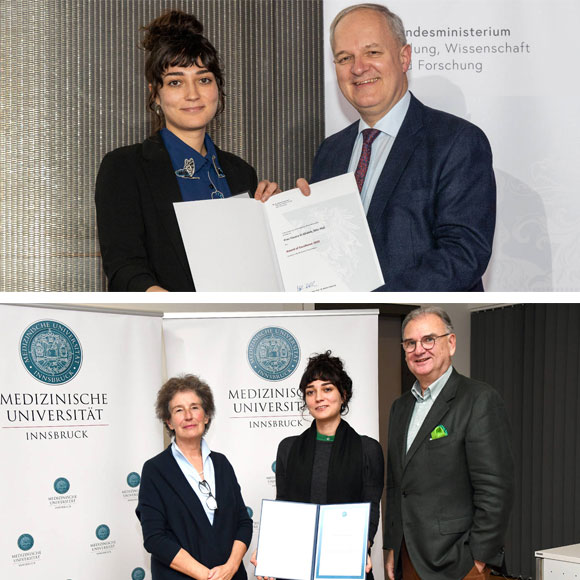
ECCC 20022 Workshops
03.2022
This years European Calcium Channel Conference in Alpbach (Austria) will host two workshops organised by our CavX Students and associated members (read more)

Poster and travel prize
02.2022
We congratulate our two students Noelia and Tamara for winning the poster and travel prize on this years Biophysical Society Meeting in San Francisco. We are proud!

Biophysical Society Meeting
02.2022
We are very happy that finally, after a global pandemic, we could participate at an international meeting. The 66th annual American Biophysical Society Meeting held in San Francisco was a complete success. It was a perfect place to meet other researchers, get up to date with the latest developments in the field, and present our science. CavX community had an astounding presence with 8 graduate students from 4 CavX labs and 3 PIs. See you next year again!
CavX Retreat 27th & 28th May 2021
04.06.2021
Happy that we could have our first program retreat after more than a year. Congratulations to all students and postdocs for an exciting symposium! I’m honored serving as speaker of such a unique and motivated PhD program! (Obermair Gerald)
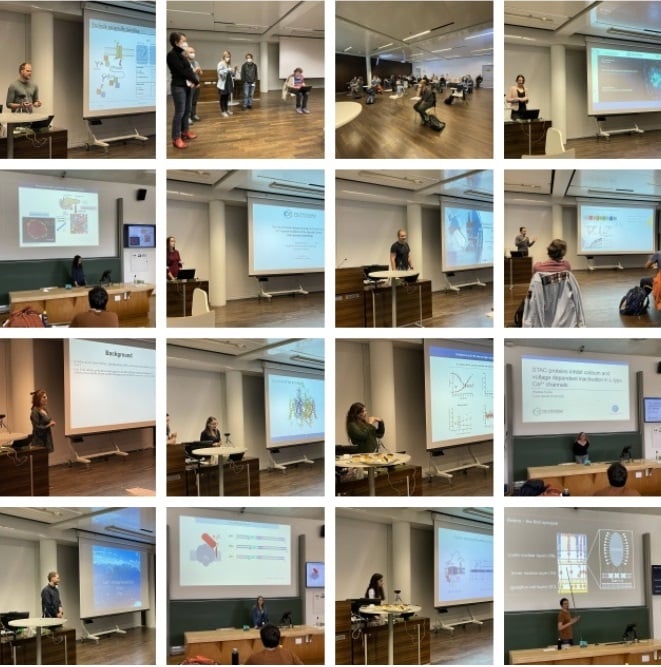
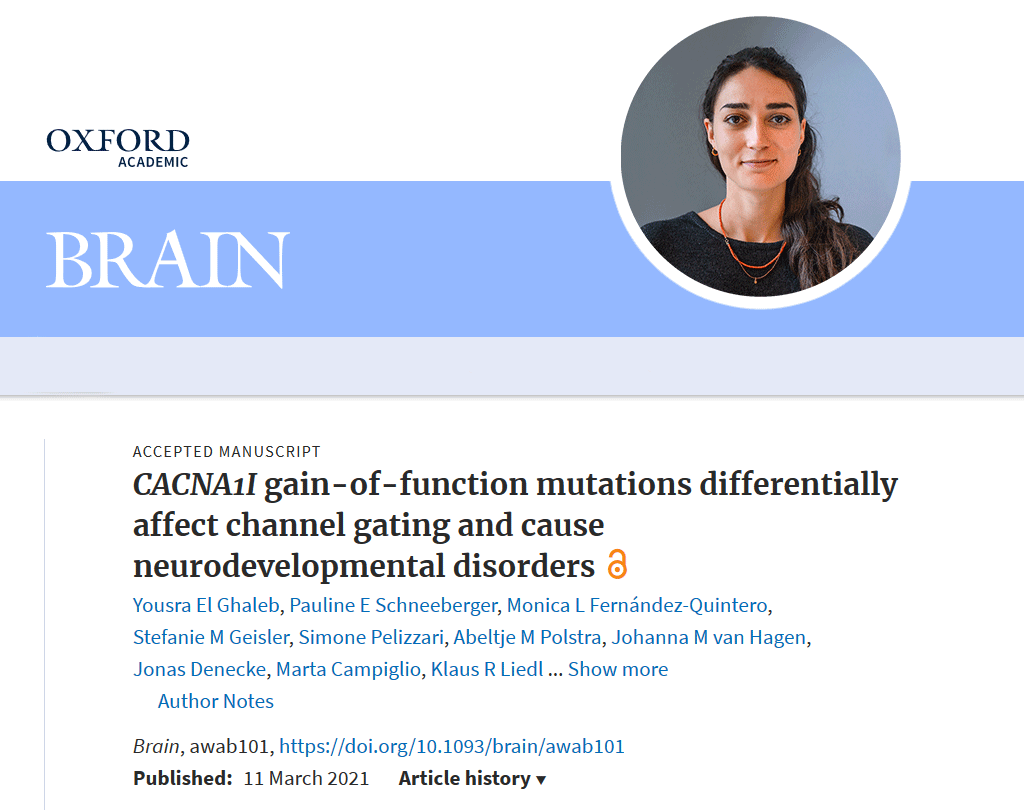
Kalziumkanal: Krankheitsgen für neuronale Entwicklungsstörung
06.04.2021
Im menschlichen Körper steuern zehn Typen Spannungs-aktivierter Kalziumkanäle eine Vielzahl wichtiger Funktionen. Neun der zehn waren bereits als Krankheit-verursachende Gene bekannt. Nun konnte ein Team von Forschern für das letzte Mitglied dieser Kanalfamilie (CACNA1I) genetische Defekte beschreiben, welche intellektuelle Störungen und epileptische Anfälle verursachen. Flucher Group, Tuluc Group (read more)

